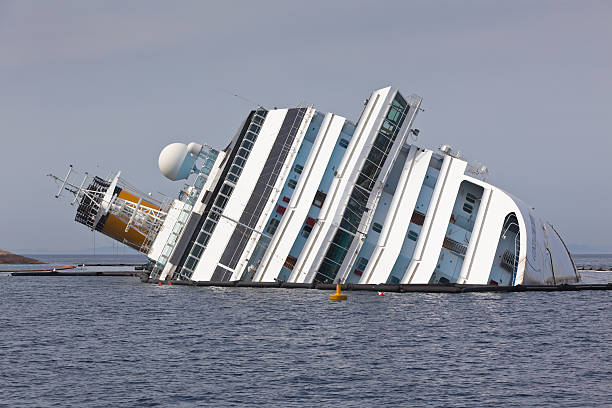Cruise vacations offer an exciting escape from the routine of daily life, but accidents and injuries can sometimes occur, turning a dream trip into a nightmare. If you find yourself injured on a cruise ship, understanding your rights and the process of making a claim is crucial. Navigating the complexities of maritime law and dealing with the cruise line can be daunting. We will explore the legal landscape surrounding cruise ship injury claims san francisco cruise, outlining what steps you should take if you are injured, the types of compensation you may be entitled to, and how to pursue your claim effectively.
The Legal Framework of Cruise Ship Injury Claims
Cruise ship injury claims fall under a unique branch of law known as maritime or admiralty law, which governs incidents that occur on navigable waters. This legal framework is distinct from standard personal injury law and has its own rules and procedures. Understanding these nuances is essential for anyone pursuing a claim. Maritime law includes various treaties and statutes, such as the Jones Act and the Death on the High Seas Act, which provide specific rights and protections for passengers. One critical aspect is the statute of limitations for filing a claim, often shorter than on land. Cruise lines require passengers to notify them of an injury within six months and file a lawsuit within one year. You must meet these deadlines to maintain your right to compensation. Therefore, immediate action is vital following an injury on a cruise ship.
Steps to Take After an Injury on a Cruise Ship
If you are injured on a cruise ship, the first and most crucial step is to seek medical attention. Your health and safety should always be the top priority. Once you have received medical care, it is essential to document the incident thoroughly. This includes taking photographs of the scene and your injuries, gathering contact information from witnesses, and keeping all medical records and bills related to your injury. Reporting the incident to the ship’s medical staff and obtaining a report copy is also essential. This documentation will serve as crucial evidence should you decide to pursue a legal claim. Additionally, avoid making statements or signing documents from the cruise line without consulting a legal professional, as these could limit your rights.
Understanding Compensation for Cruise Ship Injuries
When pursuing a cruise ship injury claim, understanding the types of compensation available is essential. Compensation can cover various damages, including medical expenses, lost wages, pain and suffering, and emotional distress. Medical expenses can include immediate treatment costs and future medical care related to the injury. Lost wages cover the income you would have earned if the injury had not occurred and, in some cases, future lost earning capacity if the injury impacts your ability to work. Pain and suffering compensation addresses the physical and emotional anguish caused by the injury. Emotional distress compensation can be awarded for the psychological impact of the incident, such as anxiety, depression, or post-traumatic stress disorder (PTSD). Understanding these categories helps you fully appreciate your potential claim’s scope.
Navigating the Claims Process
Making a cruise ship injury claim can be complex and often requires navigating through multiple steps and legal intricacies. First, notify the cruise line of your intention to file a claim. This notification must be in writing and sent within the timeframe mentioned in the cruise line’s ticket contract. Following this, you may need to engage in pre-litigation negotiations with the cruise line or its insurance company. During these negotiations, presenting all evidence gathered and clearly outlining the extent of your injuries and losses is beneficial. If a satisfactory settlement cannot be reached, the next step is to file a lawsuit. This involves drafting a legal complaint and submitting it to the appropriate court, which is often located in the jurisdiction specified in the cruise line’s contract, frequently in Florida. Understanding and adhering to these procedural requirements is critical to advancing your claim.
The Role of Legal Representation
Given the complexities of maritime law and the aggressive defense tactics often employed by cruise lines, obtaining legal representation can significantly improve the outcome of your claim. An attorney with experience in cruise ship injury cases can help navigate the legal process, ensure all deadlines are met, and build a strong case on your behalf. They can handle communications with the cruise line and its insurers, negotiate settlements, and, if necessary, represent you in court. Legal representation can also provide peace of mind, allowing you to focus on recovery while your attorney manages the legal intricacies. When choosing a lawyer, finding someone with a thorough understanding of maritime law and a track record of handling similar cases successfully is essential.
Understanding your rights and the process of filing a cruise ship injury claim is essential if you have been injured while on a cruise. The unique nature of maritime law, the specific requirements for notifying the cruise line, and the available compensation types are all critical factors to consider. By taking prompt and appropriate steps following an injury, gathering thorough documentation, and seeking legal representation, you can effectively navigate the complexities of the claims process. While pursuing a claim can be challenging, being informed and prepared can significantly enhance your chances of securing the compensation you deserve and achieving a successful resolution to your case.




